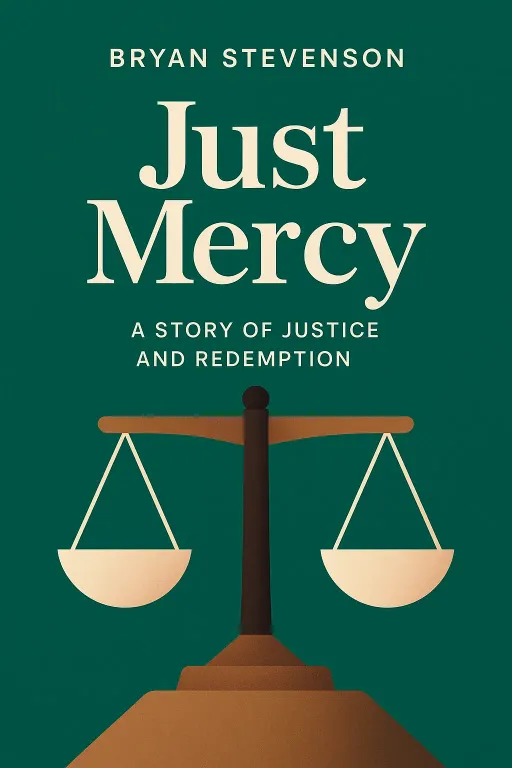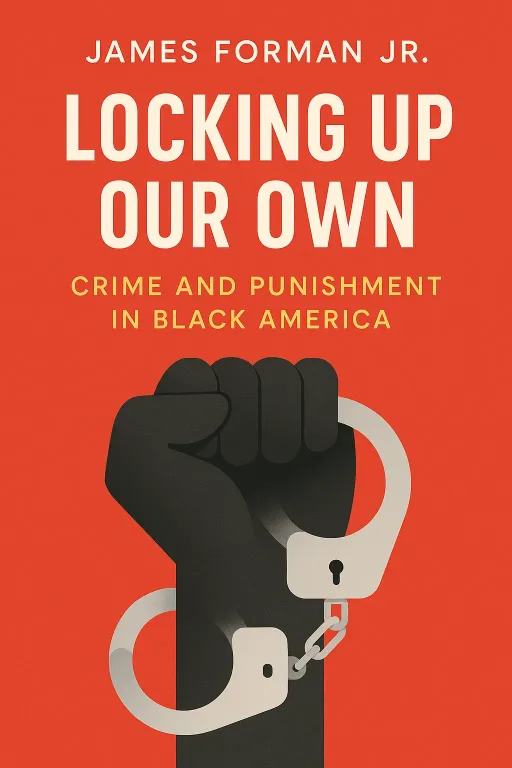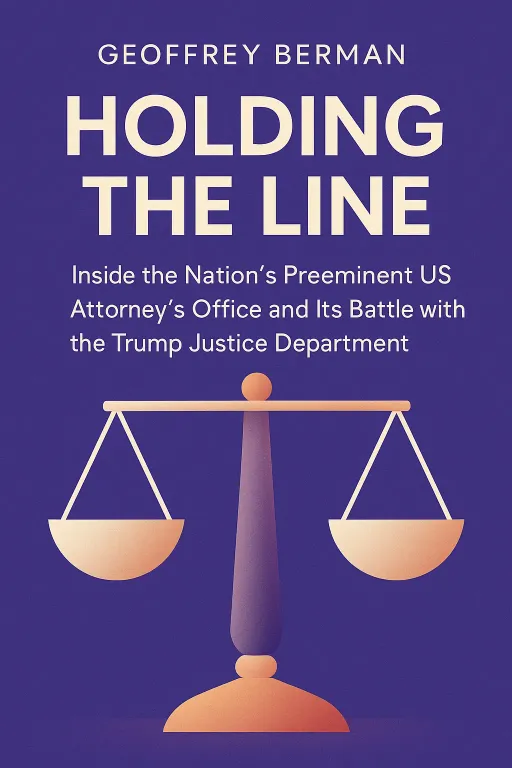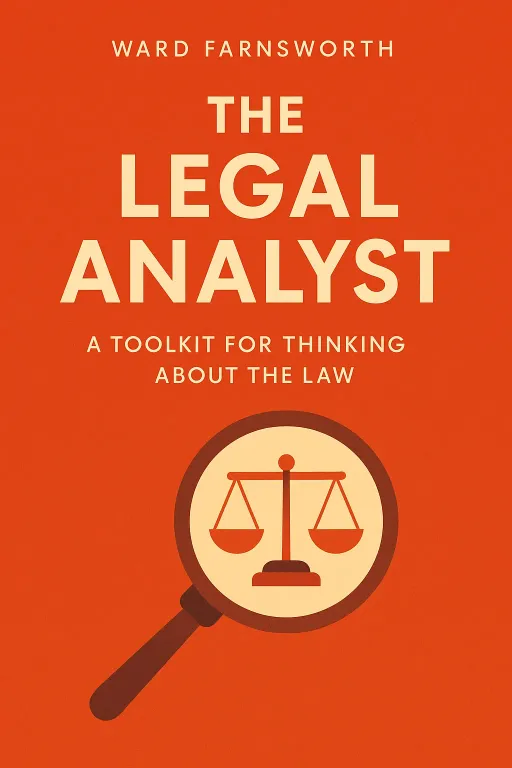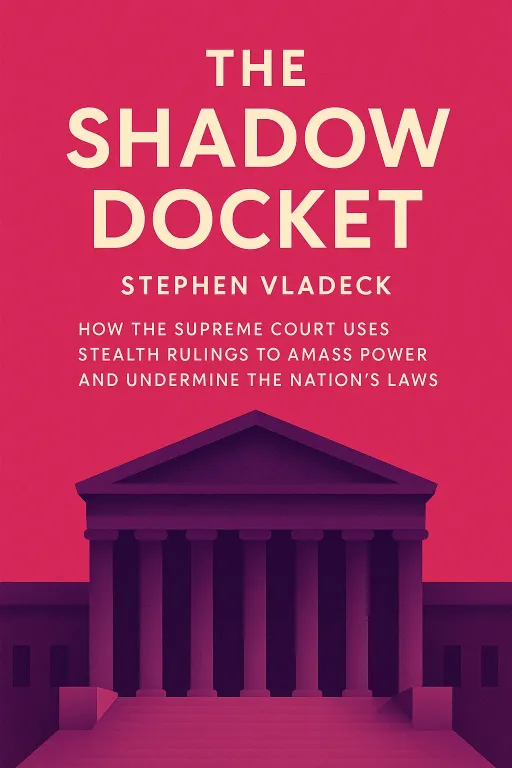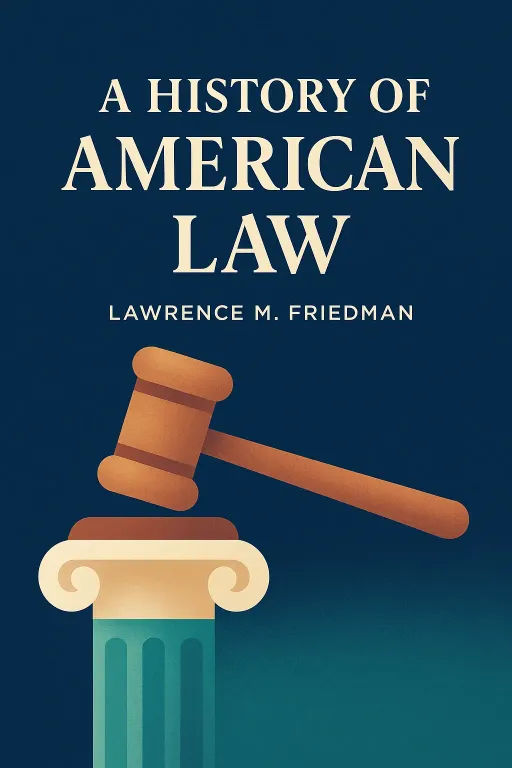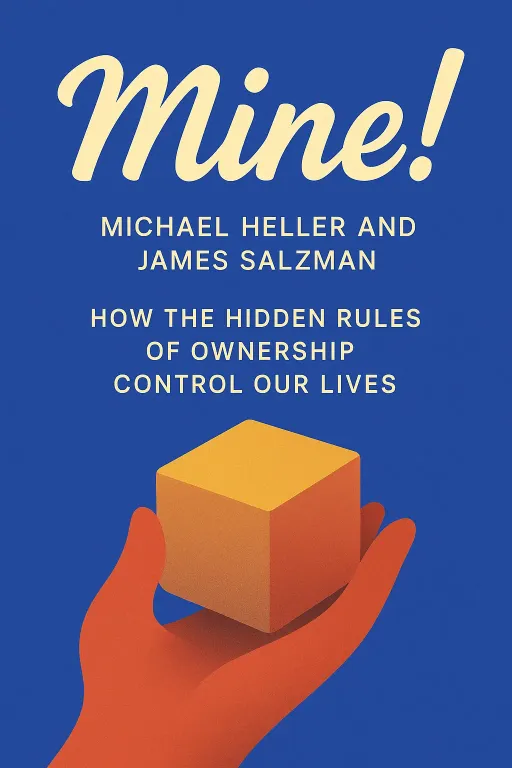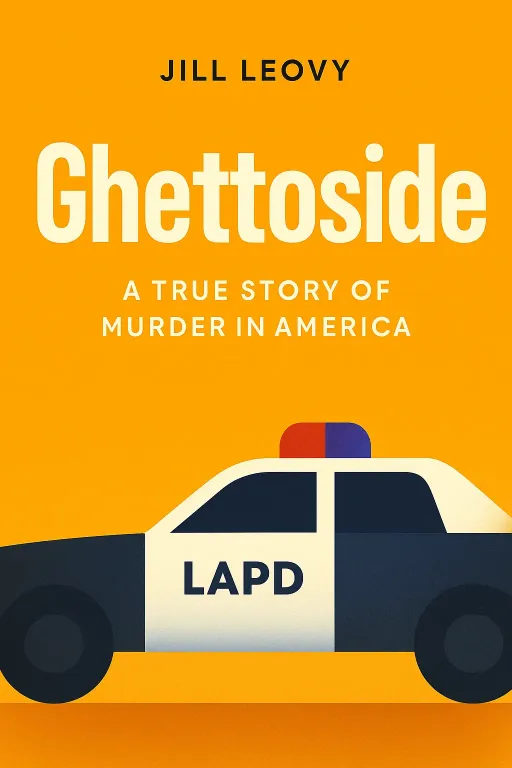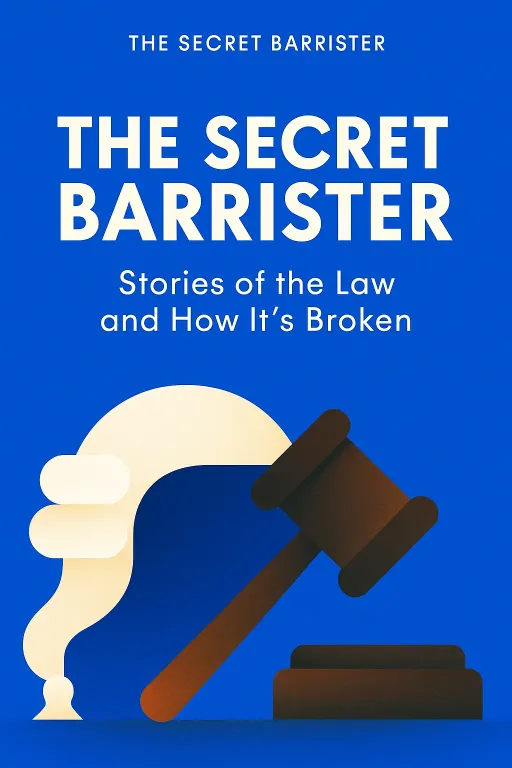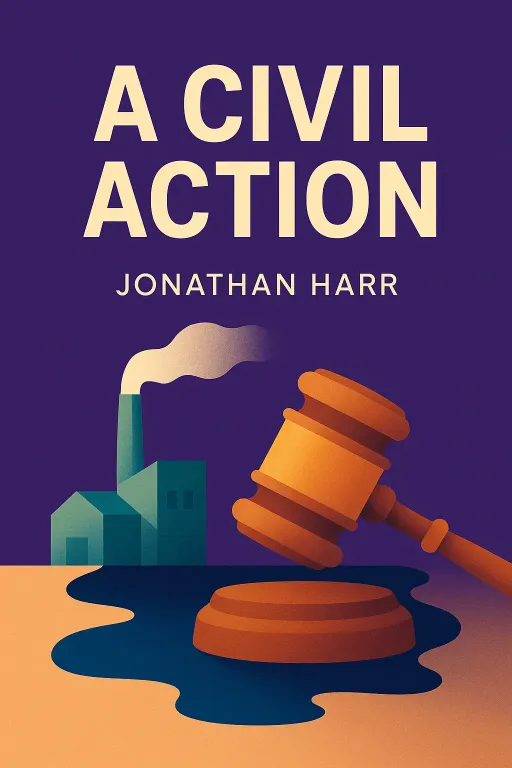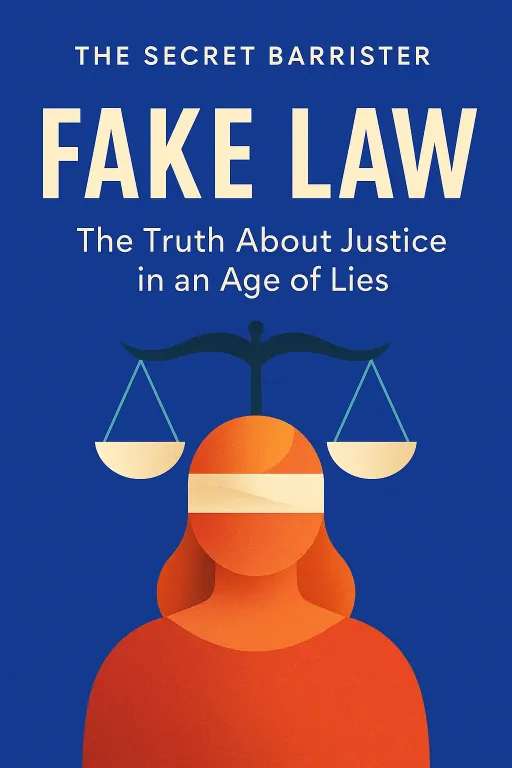
FAKE LAW The Truth About Justice in an Age of Lies
11 minIntroduction
Narrator: Imagine a story that sounds too absurd to be true: an illegal immigrant, guilty of serious crimes, is allowed to stay in the country because he owns a pet cat. This tale, often peddled as a prime example of a broken legal system, paints a picture of judges prioritizing the rights of migrant cats over the safety of citizens, all thanks to "Europe-inspired human rights legislation." It’s a story designed to provoke outrage, and it works. But what if the story isn't true? What if it’s a deliberate distortion, a piece of "Fake Law" crafted to manipulate public opinion?
In the book FAKE LAW: The Truth About Justice in an Age of Lies, the anonymous author known only as The Secret Barrister dismantles this and countless other myths that have poisoned public understanding of the justice system. The book argues that this widespread misinformation is not just harmless gossip; it is a dangerous force that undermines the rule of law, erodes individual rights, and distracts from the very real crises crippling our courts.
The "Compensation Culture" Is a Dangerous Myth
Key Insight 1
Narrator: One of the most persistent narratives is that of a "compensation culture" run amok, where greedy citizens exploit the system for easy payouts. The poster child for this myth is often Stella Liebeck, the woman who famously sued McDonald's after spilling coffee on herself. The story is typically told as a joke: a woman gets a minor burn and wins millions.
FAKE LAW reveals the harrowing truth the headlines omitted. Stella Liebeck was a 79-year-old passenger in a stationary car when she spilled coffee that was served at a scalding 82 to 88 degrees Celsius. She suffered third-degree burns across her groin, thighs, and buttocks, requiring eight days in the hospital and extensive skin grafts. Her initial request to McDonald's was simply to cover her medical bills, around $15,000. McDonald's offered a mere $800. It was only then that she went to court, where it was revealed that the company had received over 700 prior complaints about severe burns from its coffee. The jury's multi-million-dollar award was not for the injury itself, but punitive damages designed to force a corporate giant to change a dangerous practice.
The Secret Barrister argues that this case, like so many others, was deliberately misrepresented by media and corporate interests to create the illusion of a system rewarding frivolous claims. This narrative has been used to justify real-world legislative changes, such as the Civil Liability Act 2018, which restricts access to justice for genuinely injured people, all under the guise of cracking down on a "culture" that statistics show doesn't actually exist.
Emotion and Misinformation Can Hijack Justice
Key Insight 2
Narrator: Nowhere is the danger of "Fake Law" more apparent than in emotionally charged medical cases involving children. The tragic stories of Charlie Gard and Alfie Evans, two infants with terminal neurodegenerative conditions, captured global attention. The public narrative, fueled by special-interest groups and sensationalist media, was one of a heartless state and its "death panels" overriding the rights of loving parents to save their children.
The book cuts through the noise to explain the legal principle at the heart of these cases: the "best interests" of the child. In both situations, medical experts from around the world reached a devastating consensus. The proposed experimental treatments had no chance of success and would only prolong the children's suffering. The courts were not deciding to "kill" a child; they were being asked to decide what to do when doctors and parents fundamentally disagreed on the child's best interests. The legal framework, established by the Children Act, requires the court to make the child's welfare its paramount consideration.
The author shows how these cases were exploited. Pro-life lobbyists and right-wing politicians reframed a tragic medical and ethical dilemma as a simple story of state-sponsored euthanasia. The rallying cry "Please don’t let the state kill our child" was powerful and heartbreaking, but it was based on a fundamental misrepresentation of the court's role, which was to protect the children from further pain in a situation where, tragically, there was no hope of recovery.
Fundamental Protections Are Being Deliberately Eroded
Key Insight 3
Narrator: The "Fake Law" narrative isn't just about misrepresenting individual cases; it’s about systematically dismantling the legal protections that safeguard individual liberty. This is seen in the constant attacks on the Human Rights Act (HRA). The Act is often portrayed as a "charter for criminals," but the book uses the case of the victims of John Worboys, the "black cab rapist," to show its true power.
When the police repeatedly failed to investigate Worboys properly, dismissing his victims and allowing him to continue his attacks for years, it was the Human Rights Act that provided the only path to justice. The victims used the HRA to hold the Metropolitan Police accountable for its systemic failures, establishing that the state has a positive duty to conduct effective investigations into serious crimes. Without the HRA, these women would have had no legal recourse.
This erosion is also visible in the political attacks on the judiciary itself. Following the 2016 High Court ruling that Parliament must approve the triggering of Article 50 for Brexit—a decision that simply upheld the principle of parliamentary sovereignty—the judges were branded "Enemies of the People" on the front page of a national newspaper. The book argues that such attacks, often echoed by government ministers, are a direct assault on the separation of powers and the independence of the judiciary, cornerstones of a functioning democracy.
Justice Has a Price, and the Poorest Can No Longer Afford It
Key Insight 4
Narrator: Perhaps the most devastating lie exposed in the book is that legal aid is an overly generous system being abused by the undeserving. The Secret Barrister methodically demolishes this claim, showing how years of cuts have decimated access to justice for ordinary people.
The Legal Aid, Sentencing and Punishment of Offenders Act 2012 (LASPO) removed public funding from vast areas of civil law, including family, employment, and housing disputes. The book tells the stories of people like Rachel, a victim of severe domestic violence who was denied legal aid to fight for custody of her children despite overwhelming evidence of her husband's abuse. It tells of Florence, an undocumented child abandoned in the UK, denied legal aid to avoid deportation.
These are not wealthy criminals, but the most vulnerable members of society. The introduction of hefty fees for employment tribunals—later ruled unlawful by the Supreme Court—had a similar effect, causing claims for issues like unpaid wages and discrimination to plummet by 70%. The author argues that when the state makes it impossible for its citizens to enforce their rights, those rights become meaningless. Justice becomes a luxury item, available only to those who can afford it.
The Rule of Law Must Apply to Everyone, or It Means Nothing
Key Insight 5
Narrator: The final, and perhaps most crucial, argument is that the rule of law demands equal treatment for all, regardless of how unpopular or reviled they may be. The book examines the case of Shamima Begum, the British schoolgirl who joined ISIS and later sought to return to the UK. Public outrage was immense, and the Home Secretary's decision to revoke her citizenship was widely popular.
However, The Secret Barrister explains the dangerous precedent this sets. By revoking her citizenship, the government risked making her stateless—a violation of international law—and effectively created a two-tiered system of citizenship. British citizens with a claim to another nationality could now have their citizenship stripped away, while those without such a claim could not.
This "Court of Public Opinion" threatens the very foundation of justice. When we allow exceptions to be made for people we don't like—whether it's a terrorist, a disgraced banker like Sir Fred Goodwin keeping his pension, or a murderer like Jon Venables receiving a fair trial—we weaken the principles that protect everyone. The law must be a shield for the hated as well as the beloved, because the moment it becomes a weapon to be wielded by popular opinion, it ceases to be justice.
Conclusion
Narrator: The single most important takeaway from FAKE LAW is that the constant, deliberate spread of misinformation about the justice system is not a side issue—it is a direct assault on the foundations of a fair and democratic society. The narrative that our laws are broken, that judges are out of touch, and that criminals have more rights than victims is a carefully constructed lie. It is a lie used to justify the removal of legal aid, the restriction of human rights, and the erosion of judicial independence, ultimately leaving every citizen more vulnerable.
The book leaves us with a profound challenge: to reclaim our understanding of justice. It calls on us to become more critical consumers of information, to question the sensationalist headlines, and to defend the core principles of the rule of law. For in the end, the fight for due process for a person we despise is not about protecting them; it is about protecting a principle that is the only thing standing between any one of us and the arbitrary exercise of power. The real question is not whether the law is broken, but whether we are willing to do the work to understand and defend it.
